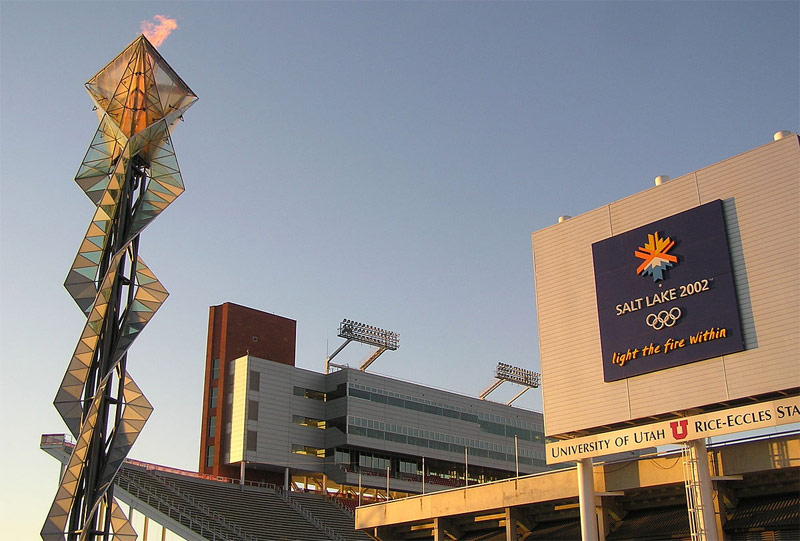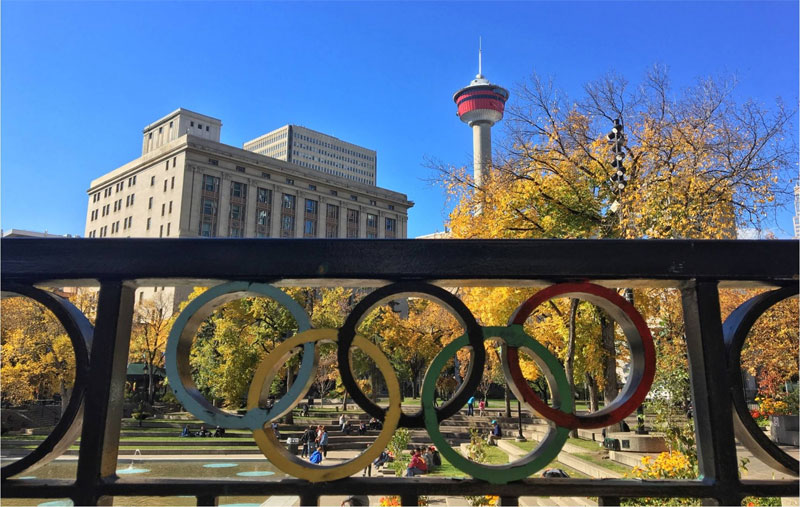BidWeek, Reporting From Toronto, Canada – In an unprecedented move last week, the United States Olympic Committee (USOC) officially declared its intention to bid for the 2030 Olympic Winter Games, even before the 2026 campaign has been launched.

Unprecedented, sure, but isn’t everything in this brave new world of Olympic bids?
On March 9, the USOC’s acting Chief Executive Susanne Lyons sent a letter to to the International Olympic Committee (IOC) outlining that there are three American cities (Salt Lake City, Denver and Reno) currently weighing the possibility of bidding for the 2030 edition of the Games – and they’re ready to talk about it.
It’s important to note here that the deadline to express interest in bidding for the 2026 Games is March 31 with campaigning set to launch in October and a decision expected next September 2019.
But USOC’s Chief External Affairs Officer Patrick Sandusky made it clear to GamesBids.com amid some misinterpretations in the press that “the USOC is interested in potentially bidding for 2030 Games and have several cities interested.”
“We are not currently looking to bid for the 2026 Games.”

When Los Angeles was awarded the 2028 Summer Games last September as part of a tripartite deal with the IOC that also landed Paris the 2024 edition, an agreement with the USOC was triggered. That deal gave a Los Angeles organizing committee certain franchise rights with exclusive access to Olympic marketing properties and revenue streams until 2028.
A 2026 deal by the USOC would infringe on that contract, and potentially risk both Games. That’s why any possible bid for those Games is off the table.
But with the recent lack of interested cities vying to host future editions of the Games, the IOC has now abandoned what had been an extremely stringent, sometimes Byzantine bid process that prevented any real strategic planning from happening. Last month in PyeongChang IOC Sports Director Christophe Dubi told me that cities no longer need to wait.
He said “the beauty of this flexible process is that anyone who wants to enter the dialogue stage can do at any time.”
“There is one city saying ‘we’re interested for ’32’; we have a meeting [today], and the dialogue starts now for ’32.”
The USOC had already figured this out and beginning with the 2024 bid process, has been looking at their Olympic bids like chess matches – finally winning an elusive Games with a gambit when 2024 was sacrificed for a guaranteed shot at 2028.
The opening moves for the 2030 Games have now begun, starting with the brief letter to the IOC. It’s complicated, but like any good chess player, the USOC is looking several moves ahead.
The 2026 race is muddied at the moment.
IOC Says Dialogue Phase For 2032 Olympic Bids ‘Starts Now’ as Interested City Comes Forward
Sion is the only ‘declared’ bidder, whatever that means in this new uncharted bid process. But the Swiss city faces an uphill battle – think cliff – with at least one, and potentially two referendums in a nation where striking down Olympic bids seems to be the national sport.
Then there’s Stockholm in Sweden, a bid that still needs to get the government on board after it has already said ‘no’. A national election later this year could make it better, or worse – but nothing is certain.
Graz in Austria will meet the March 31 deadline, but there are no guarantee either, that this bid will survive to the finish line after its Austrian predecessor Innsbruck was defeated in a referendum last year. The Communist Party has already launched a petition to force a referendum, and is actively collecting signatures and almost halfway to its goal as I write.
Turin and Milan are fighting it out in Italy to move forward with a bid, but with Rome embarrassingly forced out of the race for the 2024 Games by politics, a last-minute entry is far from assured.
Erzurum in Turkey has gained some recent momentum, but with questions about long-term stability near the Syrian border – the IOC may stay clear.

Outside Europe, Sapporo in Japan is ready to bid. Typically this bid from the 1972 Winter Games host would be a non-starter; it represents a potential third-straight Winter Olympics in Asia (after PyeongChang 2018 and Beijing 2022) and would need to be elected 10-months ahead of the completion of Japan’s Summer Games in Tokyo. But a solidly-backed bid by a city with some key venues already in place would make it easy for the IOC to forget about those flaws.
Then there’s Calgary’s bid for 2026. The opponent’s Queen, let’s say, on this 2030 chess board.
There is no doubt that Calgary is electable to host in 2026 – with usable venues, decent public support and Canadian reliability. IOC Executives Dubi and Vice President Juan Antonio Samaranch can barely contain their collective giddiness when they discuss the potential of the 1988 host city.
Then there’s this. The Winter Olympics have not been held in proper Europe since the Turin 2006 Games – that will be a 24-year absence by 2030. The IOC will take the first option it gets to return the Games to a traditional winter sports setting, in Europe, where there used to be a Winter edition every decade.
If Calgary is awarded the 2026 Games, either because the European rivals didn’t make the finish line or otherwise, there could be a lineup of European cities to host in 2030. Lillehammer has already discussed a candidacy, and its possible any ‘losers’ from 2026 will make a follow-up attempt along with other emerging cities. If so, a U.S. bid could be in a poor position.
With Calgary, the Queen, in a strong position – and with the U.S. having no say about the next move – it could be check mate for America’s hopes to host in 2030.
But the USOC knows this, and has sent the letter to IOC reminding it to pay attention to the long game. And to begin the ‘dialogue phase’ for 2030, giving them a seat at the table. By doing so it can compete with Calgary without competing directly against Calgary.

And let’s be honest, the USOC entry is almost sure to be Salt Lake City, the only former host in the trio, and with very strong public support and a well-maintained legacy from 2002 that will make hosting very efficient and sustainable.
Should the IOC begin to consider a 2026 and 2030 double-allocation as was done with the Summer Games, Salt Lake City can be involved. Or, even more likely, if the USOC can construct a double-allocation plan, as it did with the Summer Games, the Utah capital will be front-and-centre.
But at there very least, the USOC’s written offer to host in 2030 will have the IOC leaning toward European cities in 2026, and leaning away from Calgary.
Supporters of the Calgary 2026 bid should be concerned, very concerned.
The USOC is paving a new path for the Olympic bid process. I’ll write more about that in my next BidWeek column.
Follow Robert Livingstone on Twitter @enotsgnivil


